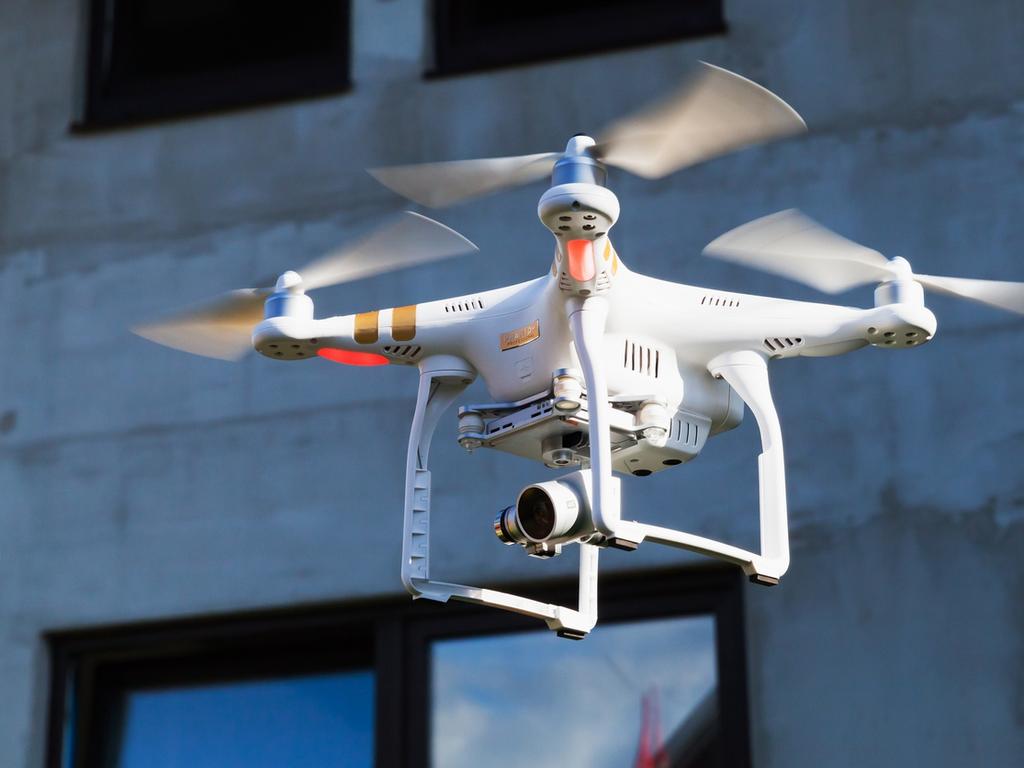Coronavirus: Sorry, Millennials, you can’t ‘unfollow’ a pandemic
To the educated, COVID-19 is an unfathomable disaster. Spare a thought then for Millennials, who — through the blindness of parents and educators — have grown up without the need for detail, depth and analysis.
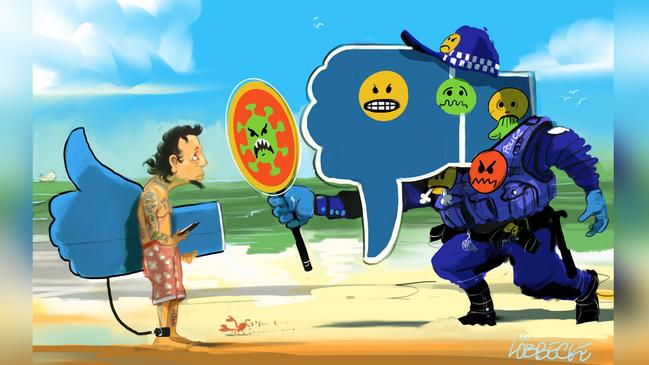
To some in modern society, COVID-19 must be unfathomable. I don’t mean it defies an understanding of impact or consequence. Those are very clear.
Yet for Millennials, those born after 1980, the fact such a threat exists outside of Netflix science fiction must be mind-boggling. This generation, concierged by adults desperate to be more friend than parent, have been courted with policies to protect them from a reality with all its risks, hardships and failures. Boundaries have been few. Everything, from deadlines to rules to gender, has been fluid.
Our education system, driven by a well-intentioned ideology where failure isn’t possible, has been found lacking. Report cards avoid the hard truth. Entire university courses have been “lightened” to ensure enrolments, “successful” students and, of course, fees.
On Bondi Beach thousands of young people defied the government instruction prohibiting groups of more than 500 people. This social-distancing order aimed to inhibit the spread of a pathogen that will change the future of the world.
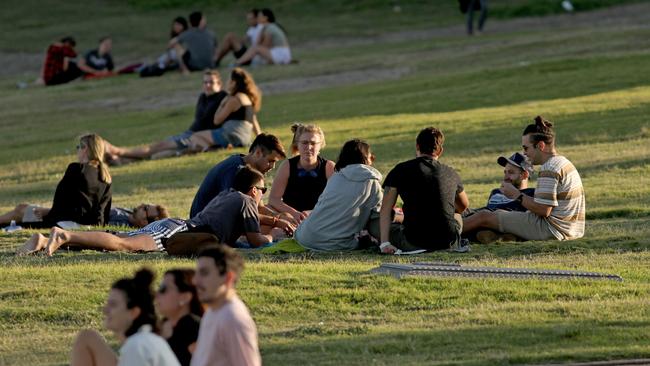
Some said the young folk were just “confused”. The reality is far more dire. Through the blindness of parents and educators, Millennials have grown up without the need for detail, depth and analysis.
Millennials are the group who speak in clipped sentences and get their news from Facebook, if at all. Their attention span is short — very short. To listen seriously to a 30-minute address from any politician or read the summary on a quality news site is, like, crazy. Accustomed to flexible rules, following the Bondi Beach order was, maybe, negotiable?
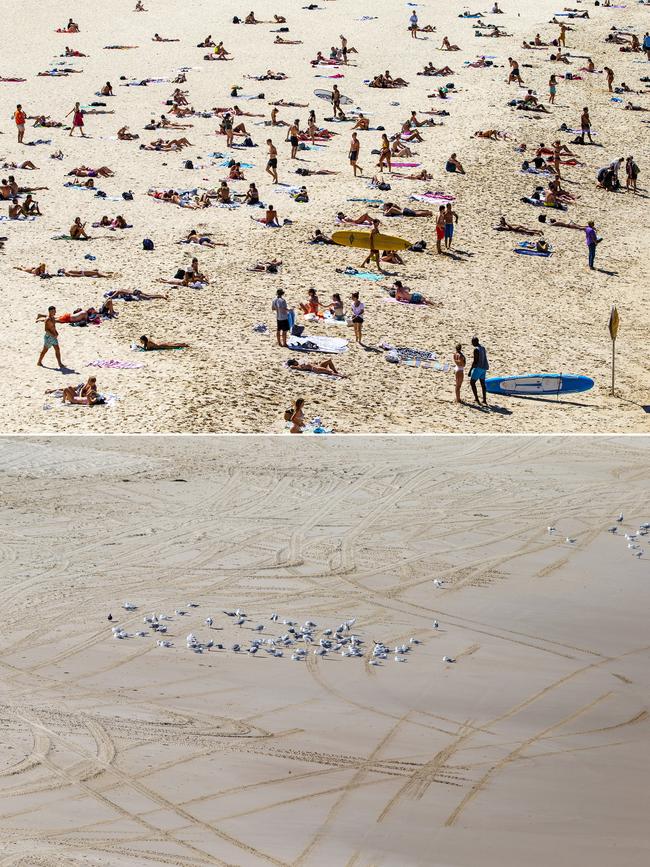
Many will never see real news instead of what keeps them engaged on their AI-curated social media feed. These platforms are designed not for thoughtful attention but to keep them scrolling and seeing ads. Each ad is called an “impression” and advertisers pay per impression. It’s not in the interests of Mr Zuckerberg to have users settle in to read a long news article — or anything that may pop their social media bubble.
Some Bondi Beachgoers stated that only a week before, the Prime Minister was intent on going to the football. What had changed? In an emergency, a week is a long time. Things change by the minute. For Millennials though, urgency is not a word they see much on Facebook or Snapchat.
When Millennials are shown the social media business model, they are amazed. I’ve taught students of global communication, insisting they understand the Facebook imperative to keep them scrolling and addicted. Sadly, very few change their habit.
Yet it’s too easy to blame social media for creating this pseudo-positive alternate reality for Millennials. We’re all to blame. Parents have jumped on the Facebook treadmill too. Time-poor educators have delighted in rapid news without depth or analysis.
If COVID-19 teaches us anything, it will be that our information must come from reputable sources. Social media is just that — a relationship platform devoid of vital information that may burst our ever-happy social bubble yet save our lives.
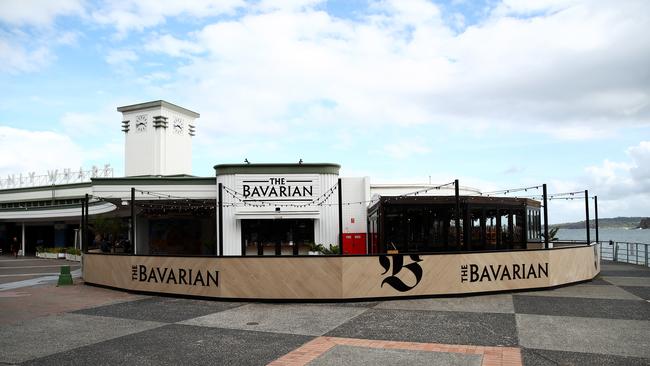
A pandemic teaches us that boundaries exist, that rules must be respected, and some people have authority over others. It emphasises the need for deadlines that aren’t negotiable or open to “special consideration”. It highlights that the interest of the majority in a community overrides that of a minority. As a 64-year-old, I know very well that I would be — and should be — without a ventilator if a younger person needs one. No amount of outrage on my behalf should change that.
To Millennials, the world is being revealed as it really is. It’s hard and unfair at times. It’s a place where the need for no-argument obedience is often required. To the many Millennials who already understand that, I honour you, your parents and your teachers. I apologise if you’ve taken offence, yet I bet you know some who fit the profile.
As for educators like me who have seen a decline in standards, we must now ensure students understand the distorting effects of social media and the importance of quality news reporting. We must insist rising generations are able to read, understand and analyse. They must know how to write a sentence and have a solid grasp of English. We must reinforce academic integrity and truth in assessment.
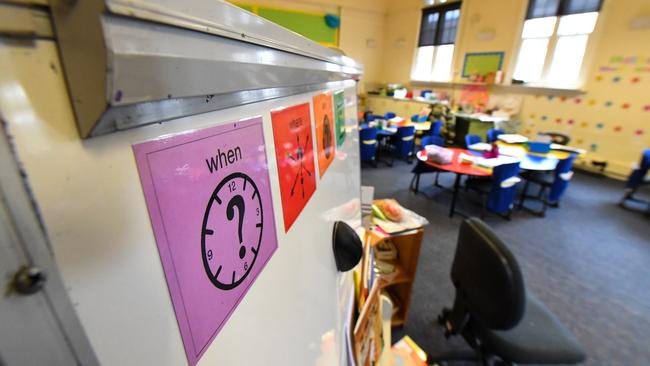
Reality must replace ideology. We can start by advising suitable students to leave school at Year 10 to pursue a well-paid and necessary trade rather than chase a doomed career via university. Unrealistic expectations entertained by fresh graduates of higher education must be smashed. Marketing must be replaced by truth.
We must refuse to pass the unpassable and be honest to parents about a student’s progress. Communication on learning and behaviour must be clear and not hide behind well-meaning yet failing policy. But most importantly, we as adults can stop blaming young people for their disobedience, distraction and lack of interest.
It’s us who’ve fallen down the technological and ideological rabbit hole. It’s us who’ve taken the easy path by being silent when we should have made noise. We will face opposition from university deans, school bureaucrats, parents and even our children, but it’s worth setting real-world standards for an uncertain future.
Phil Dye taught communication and science at several tertiary education institutions. He founded the company Mindz Brainplay, which uses electroencephalographs so students and teachers can learn about the brain. The company has lost all its income due to COVID-19 distancing.

